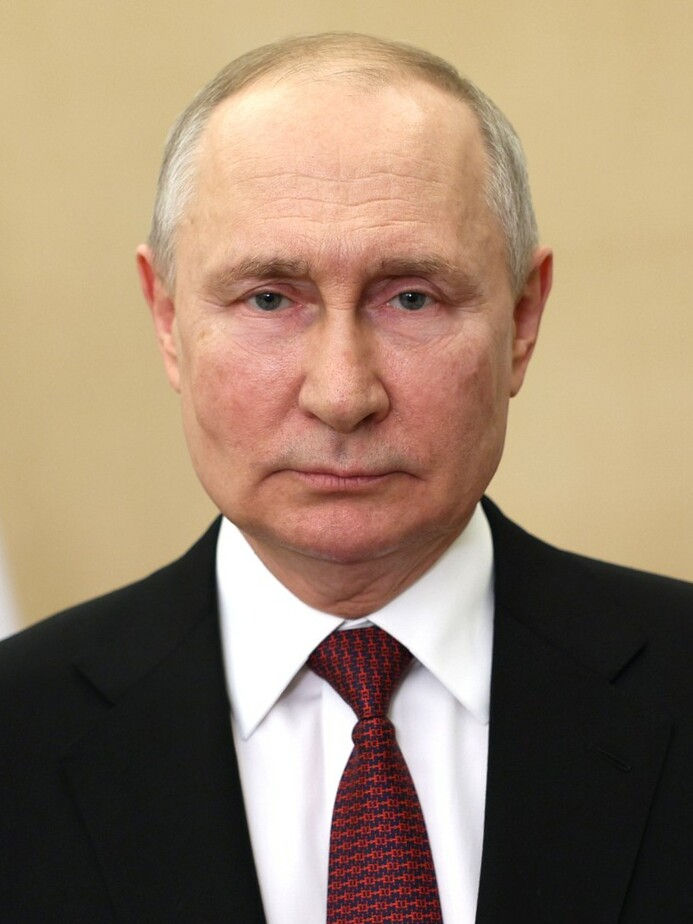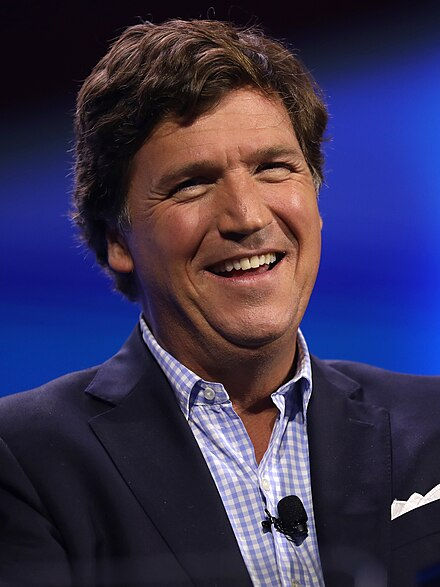“Deciphering the Echoes: The Tucker Carlson-Putin Interview and Its Ripple Effects Across Media and Geopolitics”
- 21craynewschannel
- Feb 10, 2024
- 3 min read

The Tucker Carlson interview with Vladimir Putin, conducted ahead of the second anniversary of Russia’s invasion of Ukraine, has generated considerable discussion and controversy. Here’s a detailed overview of the key points and reactions to the interview, drawing on various analyses and reports.
Key Takeaways from the Interview
1. NATO Expansion and Russia’s Stance: Putin claimed that former U.S. President Bill Clinton had initially suggested Russia could join NATO, only to later retract the statement. This issue highlights a long-standing grievance of Russia regarding NATO’s eastward expansion, which Putin argues contradicts promises made to Russia in the past.
2. Potential Prisoner Swap: Putin expressed openness to releasing Wall Street Journal reporter Evan Gershkovich, detained on espionage charges, in exchange for a Russian prisoner in Germany. This statement indicates Russia’s willingness to engage in diplomatic negotiations for prisoner exchanges, as has happened in the past.
3. US Military Support of Ukraine: Putin criticized U.S. military support for Ukraine as a provocation and argued against the involvement of American soldiers in Ukraine. He suggested that stopping weapon supplies to Ukraine could quickly end the conflict, emphasizing the need for negotiation rather than escalation.
4. Nord Stream Pipeline Explosion: Putin insinuated that the CIA was involved in the Nord Stream pipeline explosions, a critical infrastructure for Russian gas exports to Europe. This accusation points to the deep-seated geopolitical tensions between Russia and the West.
5. Advances in AI and Genetics: Putin also touched on the rapid developments in AI and genetics, expressing concern over their implications for humanity. He suggested that international agreements, similar to those for nuclear arms control, might be necessary to regulate these advancements.
Reactions and Analysis

Decoding Putin’s Intentions and Assertions
Putin’s conversation with Carlson was laden with strategic narratives aimed at shaping international perceptions of the Russia-Ukraine conflict. He presented the end of Moscow’s military actions in Ukraine as straightforward, contingent on the cessation of weapon supplies to Ukraine. This stance aligns with Russia’s long-standing narrative, seeking to shift responsibility for the conflict onto Western support for Ukraine .
Putin also reiterated controversial historical perspectives, particularly regarding the legitimacy and origins of Ukraine, suggesting it is an “artificial state” created by Soviet policies. Such statements are indicative of the Kremlin’s broader narrative, which denies the sovereignty and distinct national identity of Ukraine .
Journalistic and Analytical Reactions
The interview has been critiqued for Carlson’s lack of challenge to Putin’s claims, with some journalists and analysts suggesting that it served as a platform for Russian propaganda. Critics argue that Carlson, known for his controversial views on the Ukraine conflict and U.S. support for Kyiv, did not press Putin on sensitive issues such as alleged war crimes or the suppression of political dissent in Russia .
Journalists and commentators have also raised concerns about the state of press freedom in Russia, noting the irony of Carlson conducting such an interview while numerous journalists face imprisonment or have been forced into exile. The interview’s timing, amid ongoing repression of media within Russia, casts doubt on the portrayal of Russia as an open and democratic society .
Broader Implications
The interview’s reception highlights the complex interplay between media, politics, and public perception in international conflicts. It underscores the challenges facing journalists in navigating interviews with figures like Putin, where the line between offering a platform and enabling propaganda can become blurred. The critique from the journalistic community emphasizes the importance of critical questioning and the need to counterbalance such interviews with thorough analysis and fact-checking .
Furthermore, the interview’s analysis by Al Jazeera and VOA News points to the broader geopolitical strategy of Russia, attempting to leverage Western media to influence international opinion and domestic political discourse in the United States and elsewhere .
In conclusion, the Tucker Carlson interview with Vladimir Putin is emblematic of the intricate relationship between media narratives and geopolitical strategies. It serves as a reminder of the power of media in shaping perceptions and the critical role of journalistic integrity in upholding truth and accountability in international discourse.
The interview received mixed reactions globally. Critics argued that Carlson failed to challenge Putin on several critical issues, including alleged Russian war crimes in Ukraine and the ongoing repression of political dissent within Russia. Media analysts accused Carlson of providing Putin a platform to disseminate propaganda without sufficient scrutiny. In contrast, some praised Carlson for engaging with Putin, highlighting differing views on the role of journalism and diplomacy .
Internationally, the interview sparked debates about the implications for U.S. foreign policy and the EU’s stance on Russia, with some European officials suggesting travel restrictions for Carlson due to his amplification of Putin’s message. However, the EU clarified that it was not considering sanctions against Carlson .
This overview captures the complex dynamics and varied perspectives surrounding the Tucker Carlson interview with Vladimir Putin, reflecting broader geopolitical tensions and the role of media in international relations.

.png)



Comments